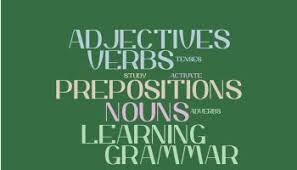14 - ] Basic Grammar For Beginners
19 - Active And Passive
To change from active to passive follow these rules :
1 . The object becomes subject .
2 . Use verb [ to be ] in the tense of the active
verb .
3 . Use the past participle .
4 . The subject becomes object and use [by] before it
.
Verb To Be
|
|
|
|
|
|
|
|
|
Simple
Present Present
Continuous Present
Perfect Simple
Past Past
Continuous Past
Perfect Modals
Perfect
Future |
am
, is are am
, is , are + being have
, has + been was
, were was
, were + being had
+ been be will
, would , shall , should , may , might , can , could , must , ought to + be will
+ have + been |
|
Examples
1 . Mary cleans the house .
The house is cleaned by Mary .
2 . Mary cleaned the house .
The house was cleaned by Mary .
3 . Mary is cleaning the house .
The house is cleaning the house .
4 . Mary was cleaning the house .
5 . Mary has cleaned the house .
The house has been cleaned by Mary .
6 . Mary had cleaned the house .
The house had been cleaned by Mary .
7 . Mary will clean the house .
The house will be cleaned by Mary .
Changes of Pronouns
|
I - me she - her they - them |
we - us he - him it , you - no change |
Exercise
Change the
following sentences into the passive voice:
1 . He paid
the bill last week .
----------------------------------------------
2 . An
earthquake destroyed the town .
---------------------------------------------
3 . Mother
will look after the baby .
--------------------------------------------------
4 . You
must clean your teeth every day .
-------------------------------------------------
5 . I am
playing the piano .
------------------------------------------------
6 . Ali has
answered the questions . ---------------------------------------------
7 . We have
done the homework .
------------------------------------------------
8 . Someone
stole my money .
---------------------------------------------
9 . They
were eating sandwiches .
-----------------------------------------
10 . We are
following the teacher . --------------------------------------------------
11 . The
airplanes have dropped bombs .
--------------------------------------------
12 . The
cold wind has frozen my face . ----------------------------------------------
13 . We
defeated the enemy . --------------------------------------------------------
14 . My
father can cancel the race .
--------------------------------------------------
15 . We
obey orders .
--------------------------------------------------
16 .
Children drink milk everyday . ----------------------------------------------------
17 . My
father has written the list .
-----------------------------------------------------
18 . My
sister plays music .
---------------------------------------------------
19 .
Grandfather told us nice stories .
------------------------------------------------
20 . He
spent the money foolishly .
-----------------------------------------------------
21 . We are
washing the dishes now .
----------------------------------------------------------
22 . Some
people collect pictures .
-----------------------------------------------------------
23 . Some
people hunt wild animals .
--------------------------------------------------------
24 . She
often forgets dates .
-------------------------------------------------
25 . We
sharpen pencils with a sharpener .
-------------------------------------------------
26 . The
teacher will explain the new words . --------------------------------------------------
27 . People
often visit that garden .
----------------------------------------------------
28 .
Children generally need help .
--------------------------------------------------------
29 . People
exchange presents at birthdays .
-------------------------------------------------
30 . The ship had struck the rock .
-------------------------------------------------------
31 . She
tasted the honey .
------------------------------------------------------
32 . We did our work well . --------------------------------------------------------






